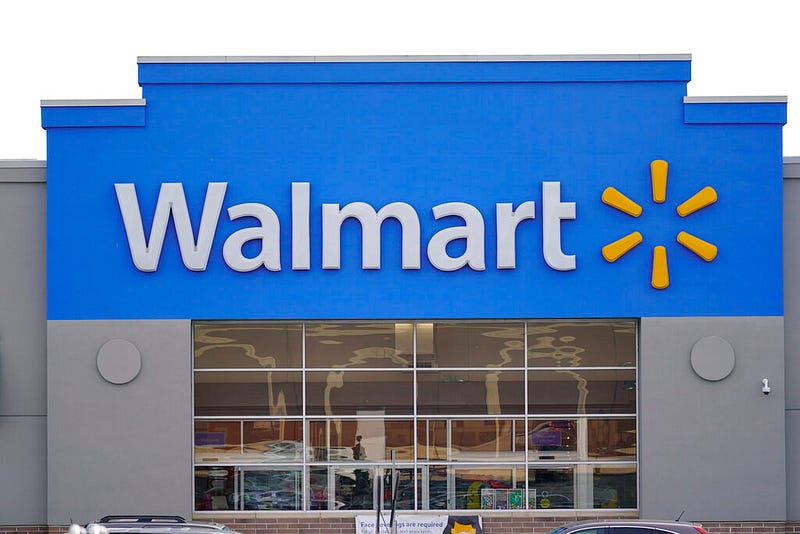Assessing Retail Giants' Earnings: A Sign of Economic Trouble?
Written on
Chapter 1: Recent Earnings Reports
In a troubling turn of events, Target and Walmart, two of the largest retail chains in the U.S., have recently published their financial results for the first quarter. Despite an uptick in sales, both companies have experienced significant drops in profits. This paradox occurs even as retail sales across the nation continue to rise, suggesting deeper issues within the economy.
The core of the problem lies in rising operational costs, including wages, energy, and the prices of goods acquired for resale. Unfortunately, these retailers are unable to fully offset these increased costs by raising prices for consumers, leading to declining profit margins.
Indeed, over the past year, consumer-level inflation has surged by 8.3%, while producer-level prices have escalated by over 11%. This discrepancy indicates that businesses are struggling to pass on these higher costs to consumers, which is a critical factor behind the dwindling profits. The outlook appears grim not only for these retail giants but also for the broader economy.

Section 1.1: Consumer Impact
The sustained high inflation means that households are forced to spend more on essential goods and services. With wage increases lagging behind price hikes, consumers find themselves with less disposable income for non-essential purchases, which in turn will lead to reduced overall spending.
Subsection 1.1.1: Economic Slowdown
As consumer spending declines, businesses are likely to cut back on production, leading to an overall economic slowdown that could trigger a recession. While many economists suggest that a recession is still six to nine months away, the current data hints at an impending downturn potentially arriving sooner than expected. The economy already recorded negative growth in the first quarter of this year.
Chapter 2: Inflation and Economic Forecasts
The most pessimistic scenario, which now appears plausible, is one where inflation remains high even as economic growth falters. This situation, known as stagflation, is reminiscent of the economic challenges faced during the Carter administration.
Most economists are currently predicting minimal, albeit positive, growth for the second quarter of this year. The initial estimates for this growth will be released at the end of July. Should the second quarter report negative growth, it would signify two consecutive quarters of declining GDP, fulfilling the classic definition of a recession.
The first video titled "Do Job Market Cracks Signal a Recession Ahead?" explores the implications of recent job market trends, which may indicate a looming recession.
While some analysts anticipate a slight positive growth rate—perhaps around 2%—inflation is expected to escalate in the upcoming months, further pressuring economic growth.
Moreover, stock market valuations are experiencing significant drops, a common precursor to recession. Investors' willingness to pay lower prices for stocks reflects their expectations of reduced future corporate profits due to an anticipated economic downturn.
Section 2.1: Retailer Challenges
Retailers such as Target and Walmart are likely to continue facing difficulties. Inflation is projected to worsen, particularly as food prices rise. Farmers are increasingly vocal about the surging costs of fertilizers, labor, and diesel fuel, which will inevitably result in higher production costs. To maintain profitability, these retailers will have no choice but to raise prices.
Subsection 2.1.1: Federal Reserve Response
The Federal Reserve's solution to the inflation crisis involves curbing the growth of the money supply, primarily through the sale of bonds purchased during the pandemic to stimulate the economy. This bond-buying program, which commenced in March 2020 and concluded in March 2022, led to a rapid expansion of the money supply.
To combat inflation effectively, the Fed must implement aggressive interest rate hikes, with expectations of at least a 50 basis point increase in June followed by another 50 to 75 basis points in July. While these measures may suppress demand and exert downward pressure on prices, they will also contribute to economic deceleration—contradicting any hopes for a smooth landing.
The second video titled "Morning Bell 9 May" discusses the broader economic implications of recent financial trends and forecasts.
In conclusion, the disappointing profit results from Target and Walmart signal the onset of more widespread economic challenges. Expect to see other companies report similarly poor profits, likely paving the way for a recession or, worse, stagflation.